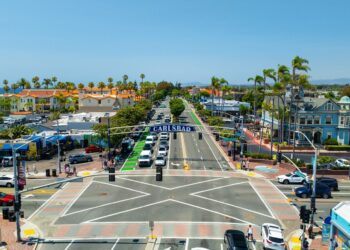
The ‘Obamaphone’ program is already plagued by waste, fraud and abuse, and expanding the program doesn’t solve any of those problems,” U.S. Rep. Doug Collins, R-Gainesville, said in a statement to The Times. “Adding broadband Internet to the program only grows the potential for even more fraud.”
In 2012, a database was created to track subsidies and reform the program after complaints and allegations of double-billing for landline and mobile phone connections became rampant.
Officials said they aim to limit fraud of the broadband subsidy by appointing a third party to review eligibility qualifications.
For many Americans, access to reliable Internet service is a non-issue. About 80 percent of all households across the United States have high-speed Internet, according to 2014 census figures.
However, the access gap exists between urban and rural communities, and along racial, class and age demographics.
For example, the FCC reports that more than 95 percent of households across the nation with incomes over $150,000 have high-speed Internet access, whereas that figure falls to 48 percent for those earning less than $25,000.
In Georgia, which is lower than the national average, about 21.5 percent of all households do not have high-speed Internet.
In Hall County, a full 23 percent of all households have no Internet service, which is worse than neighboring and more developed counties such as Gwinnett, Forsyth and Fulton.
The access gap is most pronounced in the South, where 13 of the 20 states with rates of computer ownership below the national average are located.
As more and more services, including job applications, news and government information, medical records, shopping and even school work move online, Internet access in the home is no longer seen as an amenity but rather an addition to the cost-of-living budget.
“The broadband subsidy for low-income families is absolutely essential to help bridge the technological divide,” said Rose Johnson, executive director of the Newtown Florist Club civil rights organization in Gainesville.
Monthly Internet fees average $52.50 in urban areas, according to the FCC, and often come as part of costly packages that include other services.
“Internet access ends up way down on the priority list, deepening the divide and leaving kids without access at home,” Johnson said. “This subsidy will help make Internet service possible for a lot of families who otherwise cannot afford it.”
Supporters of the subsidy hope it spurs Internet service providers to expand their reach into rural and poor communities.
Lack of access, as well as slow Internet speeds, present barriers to economic development. This has prompted the Jefferson City Council in Jackson County, for example, to establish a Broadband Advisory Committee to address ways to attract more service providers.
Collins said that while he supports rural broadband expansion, the proposed subsidy makes no guarantees.
[“Source-gainesvilletimes”]














